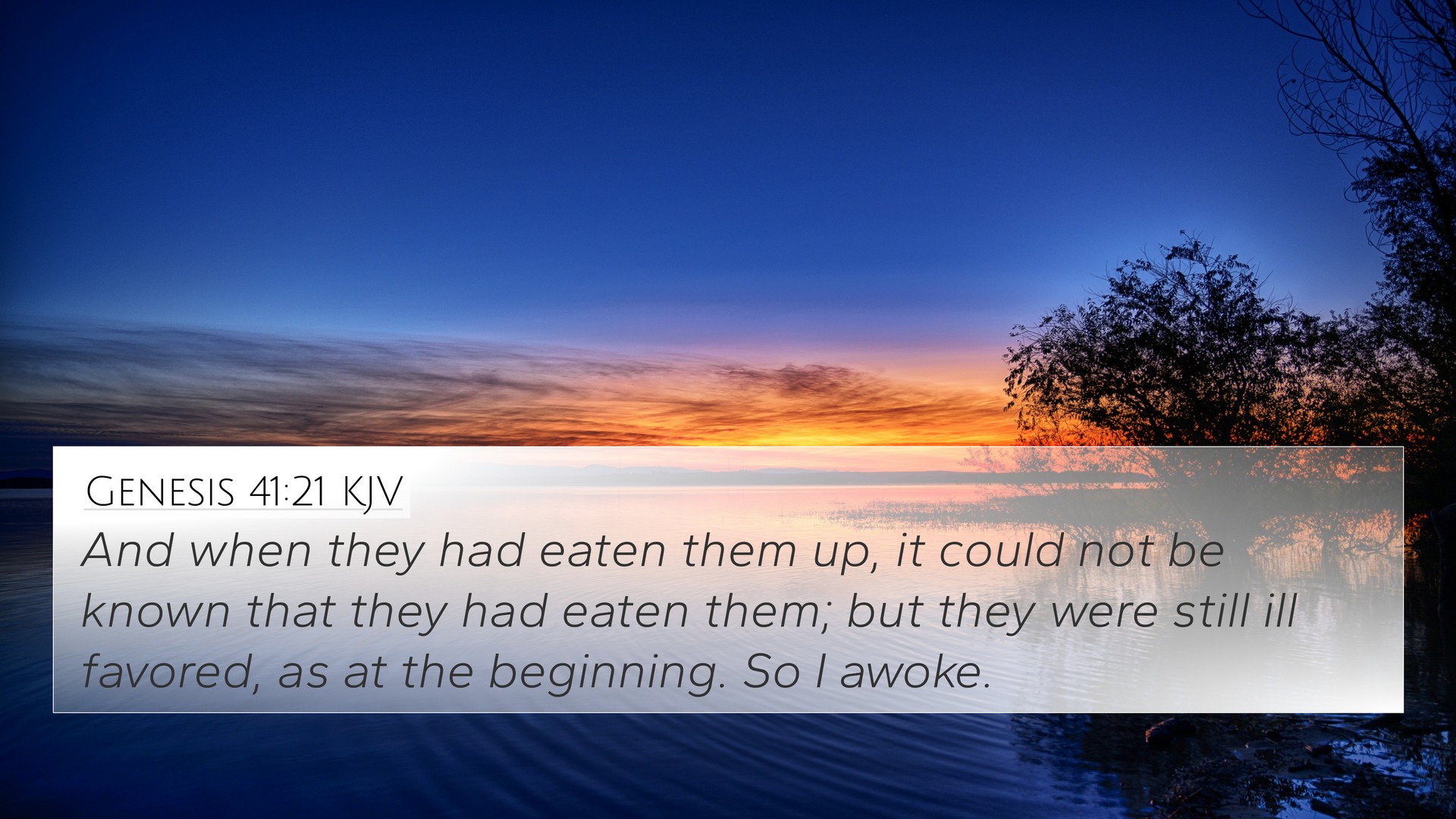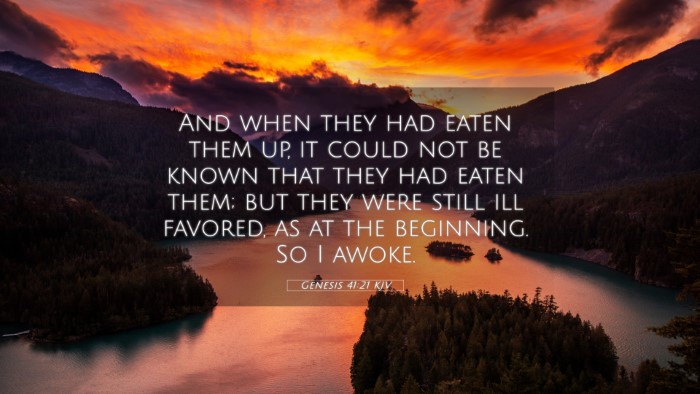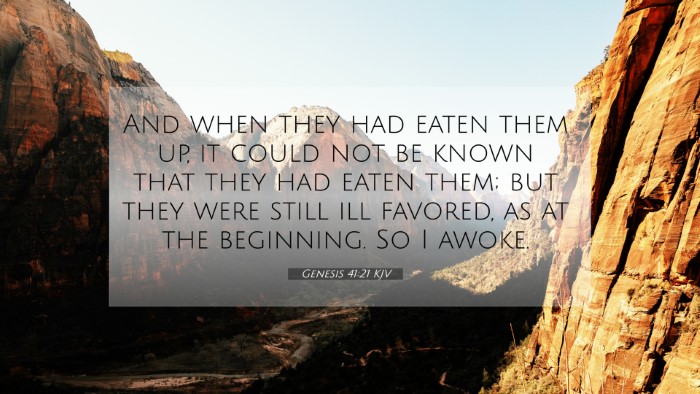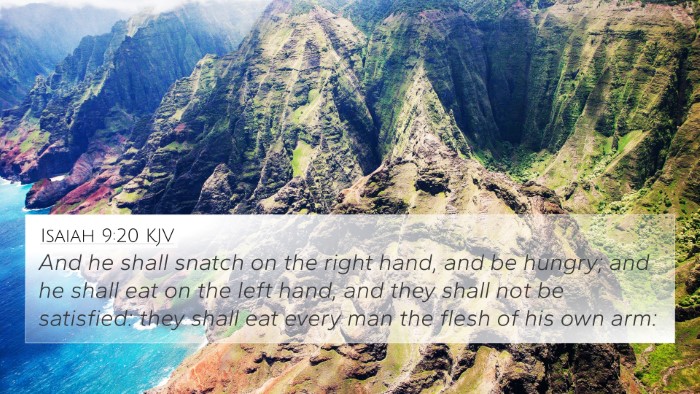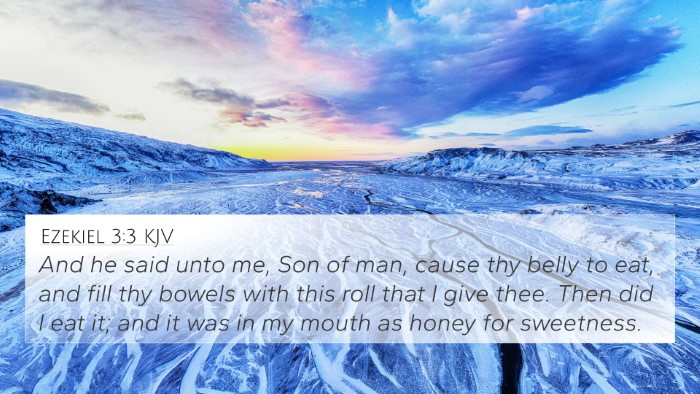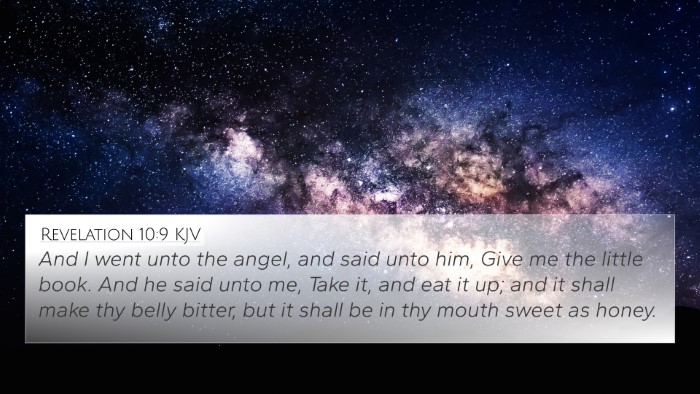Understanding Genesis 41:21
Genesis 41:21 states, "And when they had eaten them up, it could not be known that they had eaten them; but they were still ill-favored, as at the beginning." This verse occurs in the context of Pharaoh's dream and subsequently Joseph’s interpretation of the dreams, which reveals significant themes including divine providence and the importance of heeding God’s revelations.
Verse Summary
In this verse, after the lean cattle consume the fat ones, it is reiterated that the lean cattle remained ill-favored. This imagery illustrates how the devouring does not bring forth change; the original state remains even after a significant event. The underlying message from this narrative touches upon God’s sovereign control over circumstances.
Verse Meaning and Insights
Matthew Henry's Commentary:
- Divine Providence: This verse underscores God's control over events in people's lives. The lean cattle symbolize famine and misfortune, where God's forewarning through Pharaoh’s dream demonstrates His desire to safeguard Egypt by preparing for the future.
- Lesson on Spiritual Dullness: The persistent ill-favored state of the cattle signifies a warning against spiritual lethargy, serving to remind that mere physical sustenance is insufficient without spiritual insight.
Albert Barnes' Notes:
- Failure to Change: The failure of the lean cows to become robust after consuming the fat ones symbolizes that external influences alone cannot transform one’s essence. This conveys the futility of relying solely on worldly things without divine guidance.
- God’s Messages: Barnes emphasizes that through dreams and visions, God conveyed warnings that must be interpreted with caution to ensure proper preparation and response to forthcoming challenges.
Adam Clarke's Commentary:
- Symbolism of Cattle: Clarke interprets the cattle as a metaphor for the people of Egypt. The unchanged nature of the lean cattle after consuming the fat signifies the inherent moral state that remains unchanged despite external feasting.
- The Cycle of Consequences: Clarke discusses how fatigue and misfortune, symbolized by the lean cattle, can reoccur and that neglecting divine signs leads to severe consequences.
Bible Cross References
Genesis 41:21 is interconnected with various biblical themes across Scriptures. Notably:
- Genesis 41:1-7 - Pharaoh's dreams of the cattle.
- Exodus 10:20 - God's hardened heart, reflecting on Pharaoh’s obstinacy.
- Psalms 37:25 - Assurance in God’s providence during famine.
- Isaiah 55:2 - The futility of laboring for that which does not satisfy.
- Matthew 16:26 - The value of the soul against worldly gain.
- Romans 12:2 - The transformation that should occur through Christ.
- 1 Corinthians 3:6-9 - The role of God in growth and nurturing.
Connections Between Bible Verses
Understanding Genesis 41:21 allows a deeper appreciation of its thematic connections:
- Identifying the significance of dreams in both the Old and New Testaments, as seen in Matthew 2:13 with Joseph’s dream in escaping Herod.
- Linking themes of famine and sustenance evident in Ruth 1:1 and the analysis of God’s provision in times of need.
Thematic Bible Verse Connections
This verse connects to broader themes such as:
- The Sovereignty of God: Reoccurs throughout scriptures (Proverbs 16:9).
- Expectation vs. Reality: Explored through numerous narratives like the Wilderness sojourn (Exodus 16).
Conclusion
Genesis 41:21 provides profound insights into God’s sovereignty and the necessity of spiritual discernment. The devouring of the fat cattle by the lean serves as a parable for life’s challenges; despite circumstances, individuals should cultivate a reliance on divine wisdom and provision. As believers delve into connecting these texts, they are encouraged to utilize tools for Bible cross-referencing, allowing for a richer understanding of the scriptures as a cohesive whole.
Further Study
Engaging with Genesis 41:21 can be further enhanced with:
- Bible concordance for locating relevant references.
- Exploration of cross-reference methods for deeper thematic analysis.
- Utilization of comprehensive cross-reference materials for sermon preparation.
